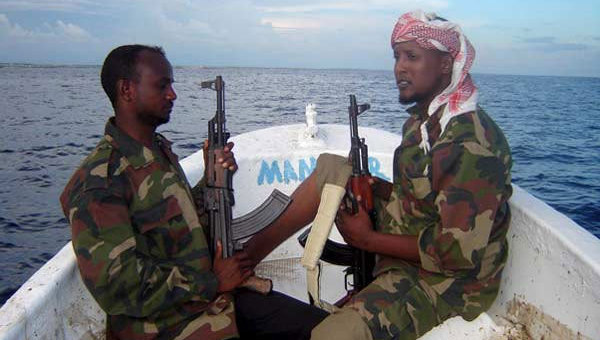Somali Pirates Earn New Cash By Acting As Escorts To The Fishing Boats They Once Hijacked

Somali pirates who raked in millions of dollars in ship hijackings have developed a lucrative new racket – acting as armed “escorts” to foreign trawlers that steal the country’s fish. In a striking case of poacher-turned-gamekeeper, the same armed gangs who once preyed on the trawlermen are now acting as their bodyguards, earning huge “protection fees” in return for letting them poach Somalia’s rich fishing stocks.
Fisheries experts have warned that many of the fishing vessels are using huge illegal nets, causing potentially enormous damage to the country’s marine ecosystem. For the pirates, the new racket offers a much-needed source of income after the hefty revenues that they used to extort through hijacks all but dried up. Between 2005 and 2011, they earned an estimated $300m in ransom payments, but from around 2012 onwards, ships passing through the pirates’ hunting grounds began routinely using armed guards, making them much harder targets.
The new protection deals are brokered through Somali middlemen operating in the Gulf countries, who offer “licences” to foreign fishing firms, often with the connivance of corrupt Somali government officials. While most of the licences have little or no legal basis, the foreign firms will often pay hundreds of thousands for safe passage into Somali waters, given that they are rich in tuna and other valuable fish.
Fisheries officials say that among the biggest customers for such licences is Iran, which has one of the biggest fishing fleets in the Gulf region, and whose government has so far turned a blind eye to complaints. Others include South Korea and Thailand, said one United Nations official who recently spent time on a ship off the Somali coast: “During that time we saw 10 illegal tuna driftnetters working very close inshore,” the official said. “It is a really bad problem, and it is ordinary Somali fishermen and the ecosystem who are losing out.
The nets are illegal under international law, and kill large quantities of turtles, sharks and dolphins. The vessels are guarded by Somali militia, and are fuelling conflict, through bribes being paid, damage to livelihoods in fishing communities and the import of weapons.” He added that one of these illegal nets had entangled in the propeller of the Italian naval escort vessel that was present on the mission, causing it to drift for several hours before divers were able to cut it free.
Source: The Telegraph